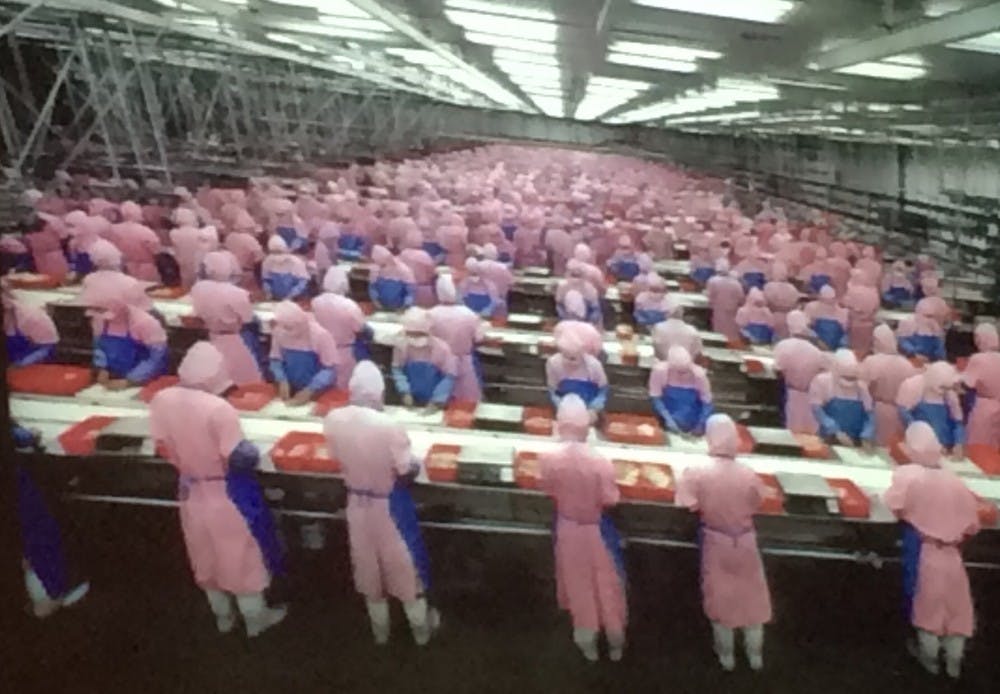Photographer and filmmaker Edward Burtynsky shed light on several environmental issues during his presentation, "Manufactured Landscapes: A View of Human Systems," Tuesday night at Elon University.
While Burtynsky unveiled several images depicting the destruction of natural resources, he encouraged open discussion and advocated for a healthier, two-sided dialogue about the issues his work revealed.
"Mining, fuel, oil and energy are all things that we use every day," Burtynsky said. "Understanding that and trying to recognize what else we can do is a healthier conversation than pointing a finger."
Before tackling these issues, Burtynsky conducted thorough research to gain a better understanding of the images he wanted to produce. He was interested in quarries early on in his career but had no idea how he should go about searching for them.
[youtube=https://youtu.be/Ldg9NFHdasA&noredirect=1&w=560&h=315]
Burtynsky attended a conference for quarriers and then traveled to several different sites within Vermont to learn more, but in 1993, he discovered that some of the best quarries were in Italy.
He had never left North America with all his camera equipment. He didn't speak Italian. He needed assistants to help him. He was in unfamiliar territory.
But he said the challenges he faced made him a stronger nature documentarian.
"The more you know about the things you're pointing your camera at, the more informed you become," he said.
His experiences photographing quarries motivated him to explore other unfamiliar topics, including oil, distress, China, agriculture and water.
He said one of his most rewarding experiences occurred in China when he exposed himself to the nation's rapid industrialization.
"The scale of China was something that I found almost impossible to understand," he said.
Since leaving China, he has become fearful of the world's ever-growing population because of the toll it has taken on the environment.
As the presentation progressed, he reflected on some of the biggest highlights of his professional career. One of the achievements he was most proud of is his 2013 award-winning film, "Watermark." He showed a five-minute clip depicting the positive and negative ways different countries are using water.
Burtynsky concluded his presentation by advising aspiring photographers to remain confident and distinguish themselves from others.
"Trust your instincts and follow both the intellectual and emotional aspects," he said. "You have to have both of them to resonate over time"


